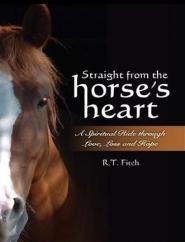The American Veterinary Medical Association is actively monitoring developments related to animals and COVID-19, the disease caused by the new coronavirus.
 On Feb. 27, a dog in Hong Kong tested “weak positive” for coronavirus (the owner tested positive). The precise meaning of “weak positive” remains unclear, and evaluation is ongoing. The dog has since received a second positive result, which has been sent to the World Organization for Animal Health, which is working with Hong Kong health officials on this case. Hong Kong authorities have said the dog shows no clinical signs of illness, but remains quarantined. They contend that cats and dogs cannot pass the virus to humans, but they can test positive for low levels of the pathogen if they catch it from their owners.
On Feb. 27, a dog in Hong Kong tested “weak positive” for coronavirus (the owner tested positive). The precise meaning of “weak positive” remains unclear, and evaluation is ongoing. The dog has since received a second positive result, which has been sent to the World Organization for Animal Health, which is working with Hong Kong health officials on this case. Hong Kong authorities have said the dog shows no clinical signs of illness, but remains quarantined. They contend that cats and dogs cannot pass the virus to humans, but they can test positive for low levels of the pathogen if they catch it from their owners.
At this time, the Centers for Disease Control and Prevention and the World Health Organization say there is no evidence that companion animals can spread COVID-19. However, as with any disease, it’s always a good idea to wash your hands after being around animals.
According to the CDC, people who are sick with COVID-19 should limit contact with pets and other animals just as they would limit contact with other people. When possible, a healthy member of the household should take over caring for any animals. If an ill individual must be around pets or other animals while sick, he or she should wear an appropriate face mask and wash hands thoroughly before and after.
A Facebook post implying that a cattle vaccine can prevent infection with the novel coronavirus spreading among humans has been widely shared, but that vaccine prevents diarrhea in calves caused by bovine coronavirus — an entirely different pathogen from the one that causes COVID-19. Under no circumstances should people ever use any animal vaccine on themselves.
For more details about this emerging disease, see the relevant article on my website (drfoxonehealth.com). Essentially, this emerging disease and others will continue to be threats, calling for ever more vaccines and medications, so long as preventive medicine remains human-centered and reactive rather than proactive. Governments must address wildlife poaching, trafficking, habitat encroachment, our ever-increasing human numbers and the killing of animals, wild and domesticated, for food.
Categories: The Force of the Horse, Uncategorized








Stay safe: Humans and all of the animals.
LikeLike
Just FYI, I normally share all of your posts, but am going to refrain from sharing this one as I am in dog/cat rescue as well as horses and do not want to scare any more people into getting rid of their dogs on the slight chance they could carry this virus 😦 shelters are full 😦
LikeLike
I had that thought too. Sometimes it doesnt take much for a panicky response – seems more so when it pertains to animals! As Jane said – all of us – animals & humans – need to stay safe. Having read quite some time ago that these viruses are becoming more prevalent as more & more wildlife habitat is being destroyed – does seem as though the larger animal rescue organizations should be putting donations into research & PREVENTION of the destruction of rain forest & wildlife habitat!
LikeLike